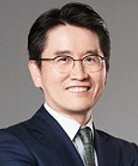Seoul, Washington, Tokyo should cooperate to change Beijing's attitude
Seoul, Washington, Tokyo should cooperate to change Beijing's attitude
Posted February. 13, 2016 07:34,
Updated February. 13, 2016 08:01
Chinese Foreign Minister Wang Yi urged his South Korean counterpart Yun Byung-se on Friday to be "discreet" in taking security-related measures in consideration of neighboring countries' interest and concerns. The top Chinese diplomat expressed concerns yet again over South Korea's decision to begin formal talks later this month with the United States to adopt the Terminal High-Altitude Area Defense (THAAD) system. Seoul's Ministry of National Defense said Friday that it will strategically pick a candidate site for the U.S. missile defense system to maximize military utility, rather than on a backlash from other countries. The location of the THAAD deployment is not a matter, about which Seoul should take other countries' backlash into consideration in that the deployment is a minimal measures to establish a system for intercepting North Korean missiles.
South Korean President Park Geun-hye attended China's World War II victory day events last year for the first time among Western or pro-Western countries' leaders and agreed with Chinese President Xi Jinping to deter North Korea's nuclear weapons development. In retrospect, the efforts ended up to be meaningless. Now, Seoul has no other choice but to ensure its security through its cooperation with Washington and Tokyo. As soon as South Korea announced that it would close its joint industrial complex in the North Korean city of Kaesong, Japanese Prime Minister Shinzo Abe held a national security council meeting to announce its own sanctions on the North. He also had telephone talks with the U.S. and South Korean leaders to propose that the three of them meet separately on the sidelines of the Nuclear Security Summit scheduled for March 31.
The three allies' leaders should seek simultaneously to urge the U.N. Security Council to take sanctions on the North, persuade China to believe that a nuclear-free North Korea is good for Beijing while putting pressure on China with a secondary boycott. According to a survey on Weibo, a Chinese social networking site, 66 percent of Chinese people supported Washington's military actions against Pyongyang. This suggests Chinese people are well aware that Beijing's cuddling of Pyongyang is marring their country's pride and damaging peace in Northeast Asia.
The international community is becoming increasingly determined to end the vicious circle of provocation, sanctions, dialogue, compensation and provocation this time. U.S. think tanks also say that if the international community fails to resolve the North Korean conundrum, it would end up opening Pandora's box of geopolitical, humanitarian and potential military challenge.
There are signs of burgeoning peace in Syria, which was called the epicenter of a third world war, after the U.S. and Russia, which once were on the verge of military confrontation, have agreed to end the civil war. Once the Syrian crisis is revolved after Iran, the next most volatile powder keg of the world is the Korean Peninsula. If the international community fails to stop the North's nuclear development, it would be recorded as the most fatal failure in the world history of diplomacy.
허문명국제부장 angelhuh@donga.com







